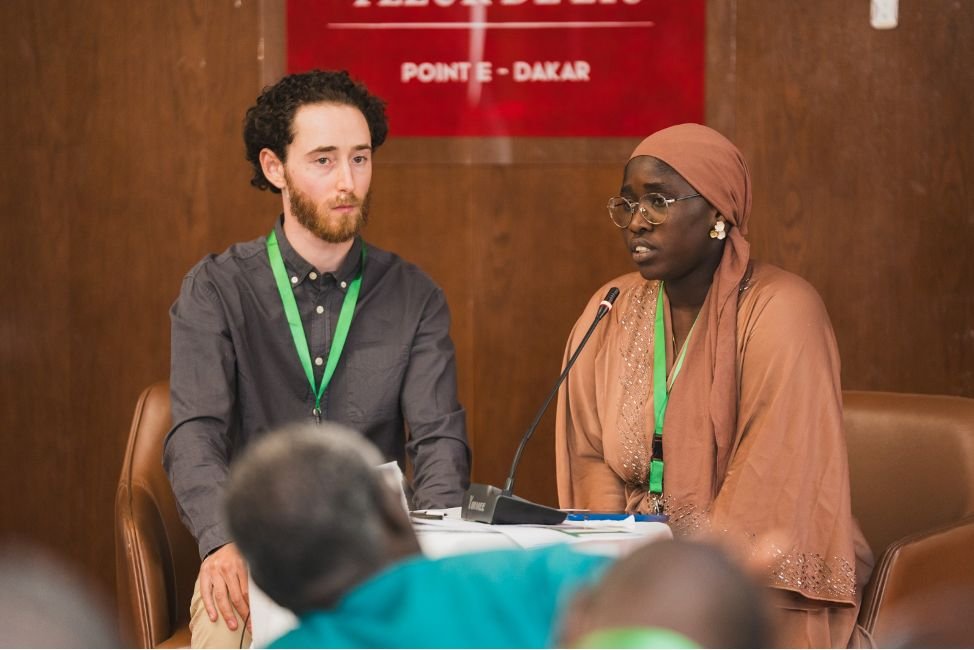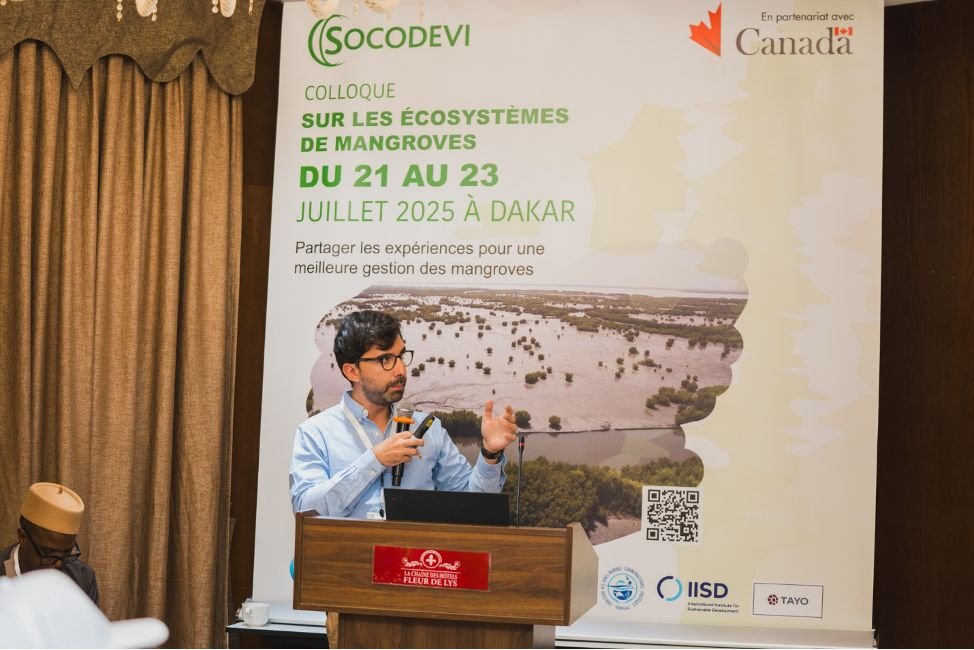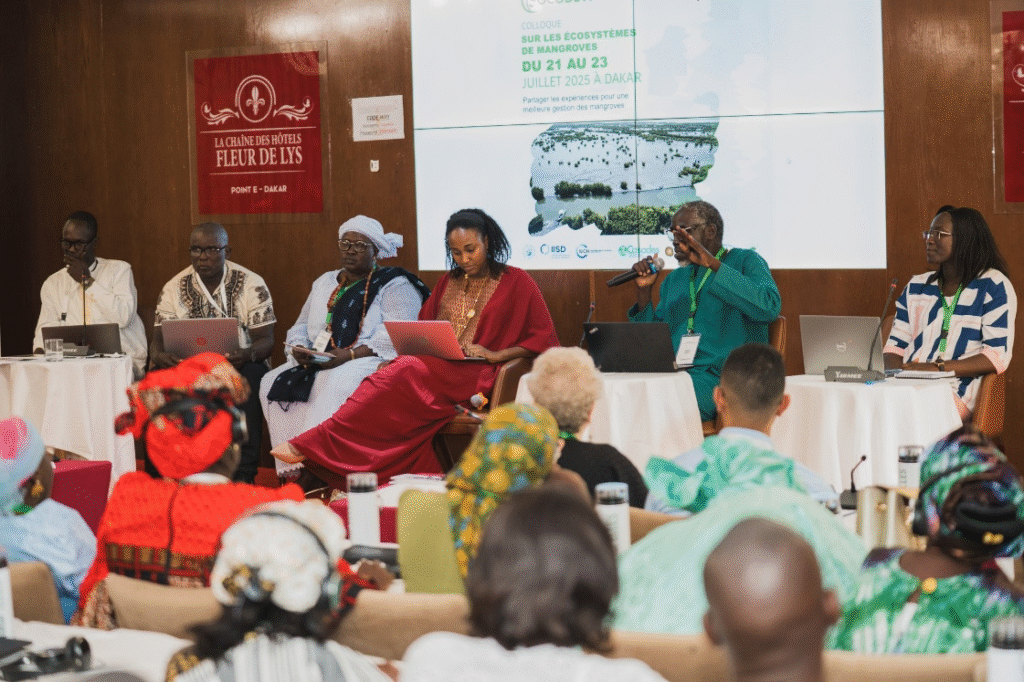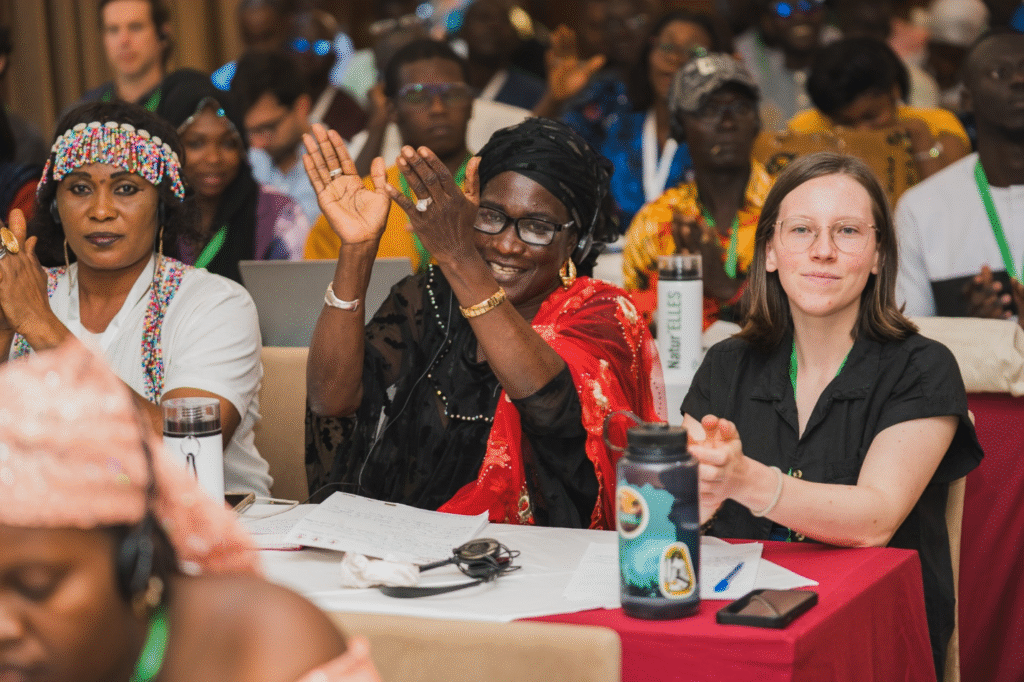Theme : Ecosystem goods and services provided by mangroves: From conservation to socio- economic development
The Mangrove Ecosystems symposium in Dakar is uniting policymakers, financial leaders, and community members to explore the wide benefits mangrove ecosystems deliver for people and the planet. Discussions explored the importance of mangroves ecosystems.
The topic of day 1 focused on: “Ecosystem goods and services of mangroves: From preservation to socio-economic valorization, recognizing the differentiated and complementary roles of women and men in managing these ecosystems.”
Mangrove ecosystems provide a wide range of goods and services to coastal communities in over 100 countries, including carbon sequestration, biodiversity protection, coastal defense, and food security. However, these ecosystems continue to face degradation due to both natural and human-induced pressures. For this reason, an integrated approach —combining ecological, socio-economic, and climate dimensions—is essential to properly assess projects and tailor solutions to local realities. Mangroves offer an important opportunity for nature-based solutions that boost communities’ resilience to climate change. By leveraging data and research, it’s possible to underline those benefits for decision makers.

IISD presented preliminary results on its SAVi analysis conducted for the Natur’ELLES project, which forecasts the costs and benefits of different types of infrastructure interventions in a region. Results for Sine Saloum and Casamance show a positive Net Present Value (NPV) in all scenarios involving mangrove forest restoration. (ranging from 6.01 to 24.10 billion (African Financial Community Francs) and strong cost-benefit ratios (2.36 to 6.46), far exceeding the viability threshold. This mean that when the BCR (benefit to cost ratio) is higher than 1 the project is viable, when the BCR is lower than 1, then the project is not viable.

The conference also explored the relevance of recognizing and valuing cultural and traditional knowledge in public policies. Indigenous and traditional knowledge systems for the conservation and protection of mangroves have existed for many centuries, but they are often ignored and marginalized in decision-making processes. Integrating them into policy is essential for the future of mangroves.

In Senegal, women are very active in mangrove ecosystems. They hold unique local knowledge on mangroves and protected areas. Conference attendees discussed how it is key to empower women through capacity building activities, particularly to increase literacy levels and offer leadership training. When women can read and write, they are better equipped to participate in decision-making around mangrove forest management.
Regarding both valuing Indigenous knowledge and capacity building for women, an important idea emphasized by Djibril Niang from the project AC-FAO was intergenerational training. This involves different age and gender groups training each other and holds value for mangrove restoration, he said.

Symposium attendees also discussed how multi-stakeholder collaboration is essential to achieve impactful results for the protection and restoration of mangroves and the management of resources. Presenters shared how policies must reflect local realities, reallocate budgets to directly support communities, and include participatory monitoring and evaluation systems.











Leave A Comment